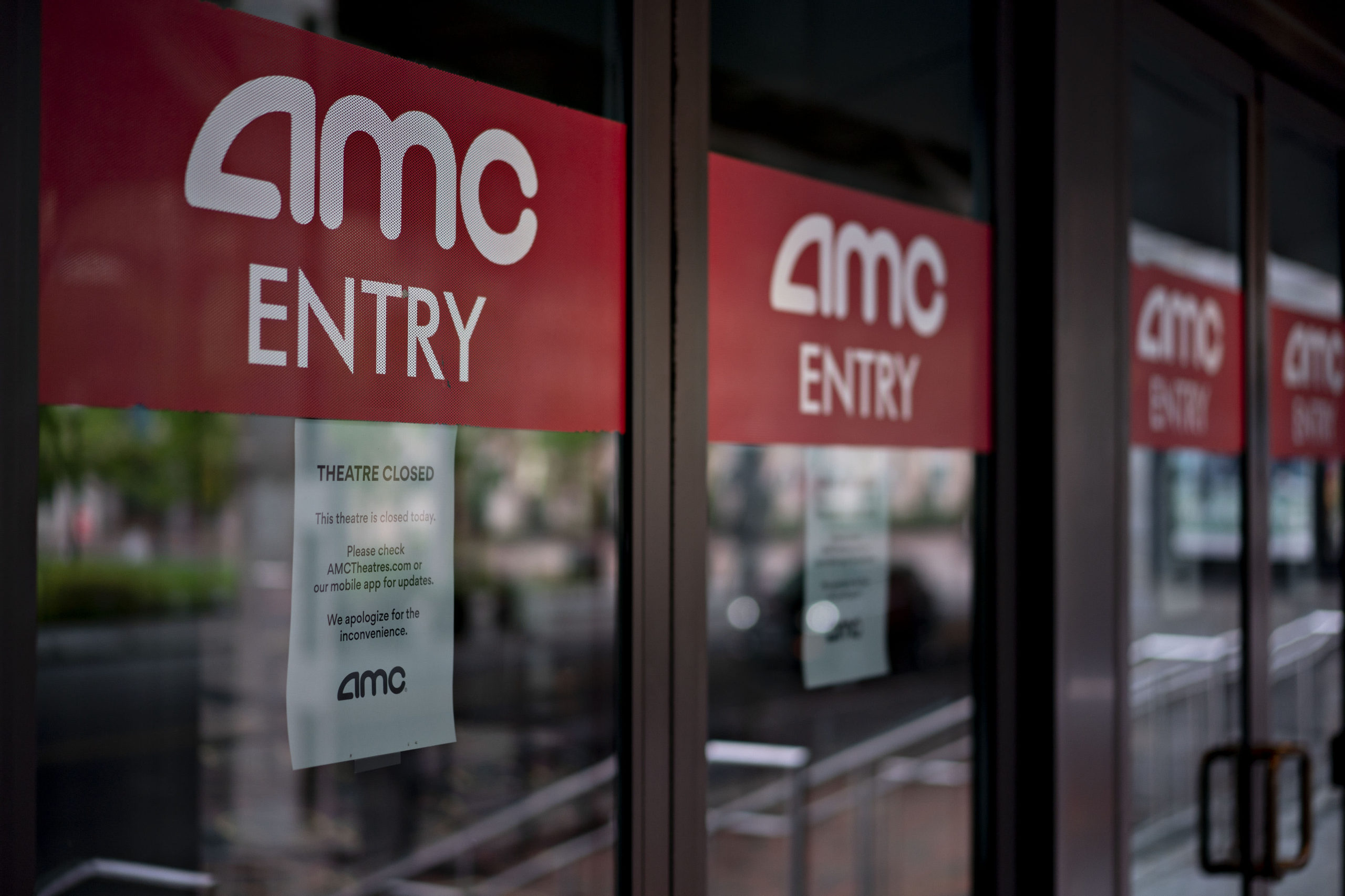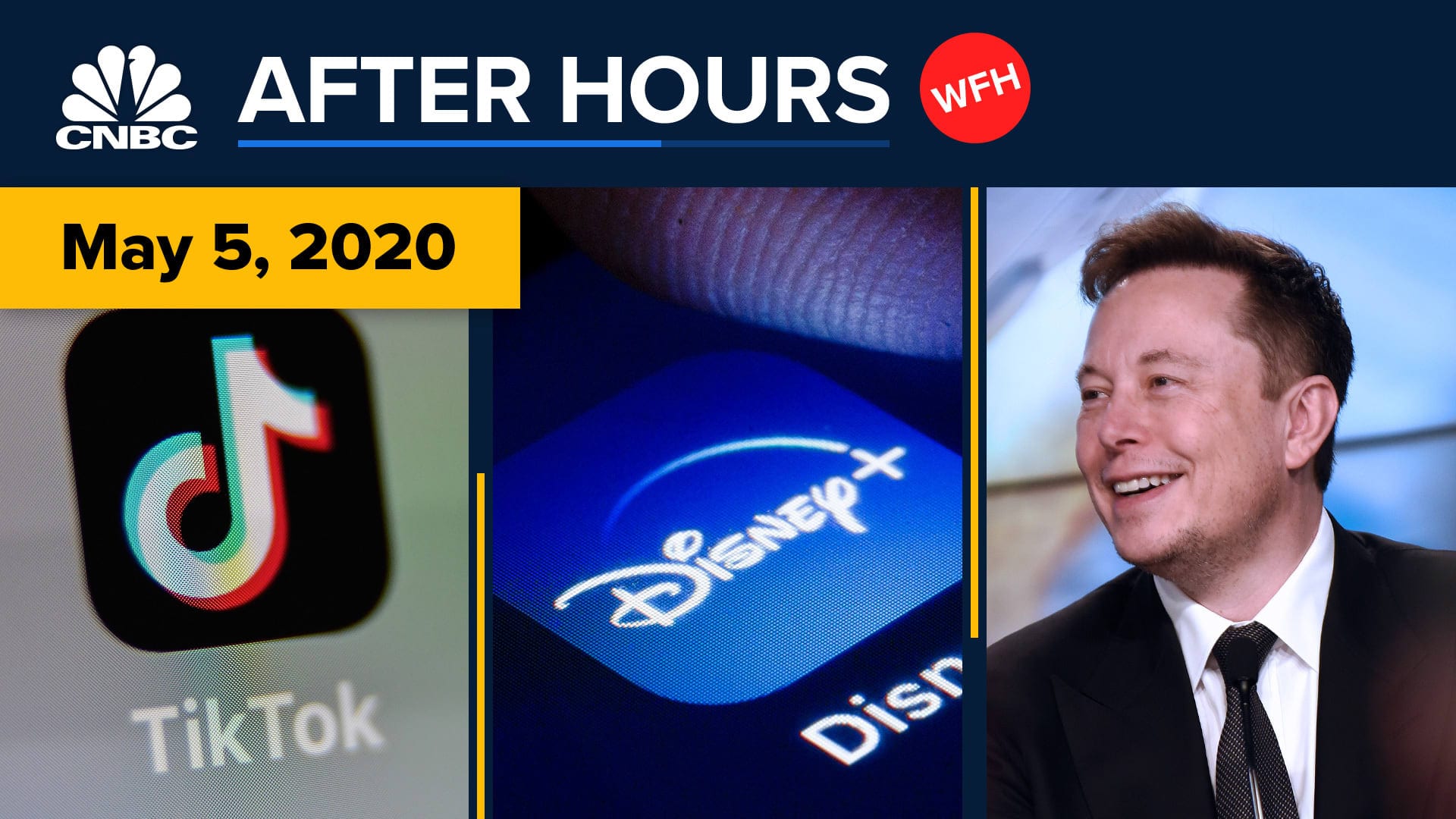[ad_1]
Temporarily closed signs hang on doors at an AMC Entertainment Holdings Inc. movie theater in the Georgetown neighborhood of Washington, D.C.
Bloomberg
Tensions are running high in the film industry.
Studios and exhibitors have been faced with difficult decisions in the wake of the coronavirus pandemic, as both are grappling with how to keep their businesses afloat long enough to weather movie theater closures and social-distancing restrictions.
Theater owners had been understanding when movies that had already been in theaters went to the home video market early or theatrical releases that had already done the bulk of their marketing skipped theaters for a video on-demand launch. However, the relationship between exhibitors and studios reached a boiling point Tuesday, resulting in the world’s largest theater chain announcing that it would no longer play movies from one of the biggest studios in Hollywood.
This quarrel has brought to the surface decades-long concerns over the vitality and longevity of the traditional theatrical experience and called into question if movie theaters will truly be able to go back to normal after this outbreak ebbs. It’s also created a crowded calendar of movie releases for studios to puzzle over as they look to maximize profits. The result could be a rethinking of this longstanding relationship.
Trolls World War
After taking a victory lap in the press over the digital success of “Trolls World Tour,” NBCUniversal CEO Jeff Shell suggested on Tuesday that the studio may start to do more simultaneous releases of its movies in theaters and on-demand, even when theaters reopen.
Exhibitors were already feeling antagonized by Universal after the studio announced that “Trolls World Tour” would have simultaneous release, even before theaters had officially closed. Shell’s new comments only exacerbated theater owners’ fears and frustrations.
The National Association of Theatre Owners quickly responded, saying the performance of “Trolls World Tour” was indicative of hundreds of millions of people being isolated in their homes and seeking entertainment, not a shift in consumer viewing preferences.
AMC took it a step further, saying it would no longer showcase Universal’s film slate at its more than 1,000 locations.
Still from “Trolls World Tour.”
Universal
“AMC’s position in this matter, which is to never show Universal pictures again, is absolutely not only the correct response for a theater chain to have, but really it’s their only response,” Tom Nunan, a lecturer at the UCLA School of Theater, Film and Television, said. “That kind of comment from Jeff Shell could be a death knell for theater chains.”
Since 2010, when Netflix shifted from renting DVDs to launching a streaming service, the theatrical model has become increasingly threatened. Consumers typically are only venturing out to theaters three to five times a year, and with more content becoming available on more streaming platforms, there’s a fear that movie theaters could continue to take a hit.
Of course, there are studies that suggest the people who go to see movies in theaters more frequently are also the people who consume more streaming content.
What’s at stake
Theater owners are in a particularly vulnerable position during the coronavirus outbreak because their cinemas are closed and their revenue has shrunk to essentially zero. Major players in the space have been forced to layoff and furlough employees, suspend dividends, cut salaries and draw down on debt revolvers in order to keep bankruptcy at bay.
“We are dealing with a wrecked business,” Jonathan Kuntz, who teaches film history at UCLA School of Theater, Film & Television, said. “And AMC knows it, and their investors know it and it’s why you are seeing an imminent risk of death to that company.”
Theaters thrive on having the exclusive first window for a film. It’s what drives consumers out of their homes. If studios were to start releasing films in theaters and on-demand at the same time, it would not only take ticket revenue away from exhibitors, it would also mean concession revenue would take a hit.
Last year, the movie theater industry took in $15 billion in revenue domestically, a combination of around $11 billion in ticket sales and $4 billion in concessions. Globally, ticket sales soared to a new high of $42.5 billion.
“Theater Closed” signs are posted in front of the AMC Montebello, as the US chain of AMC movie theaters closes for 6 to 12 weeks, On March 17, 2020 in Montebello, California, as the coronavirus (covid-19) epidemic leads to restaurant and school closures and workers working from home in an effort to encourage social distancing.
Frederic J. Brown | AFP | Getty Images
Some theaters have rallied behind AMC’s statement, like Cineworld’s CEO Mooky Greidinger, who agreed that if a studio did not respect the traditional theatrical windows and decided to release a film on-demand and in theaters on the same day, Cineworld would not show that film.
Similarly, Sonny Gourley, the senior vice president of film at Marcus Theaters, said his chain does not currently do the simultaneous ‘”day-and-date” releases, but would still show theatrical exclusive releases.
While the coronavirus still has theaters on lockdown, there is an expectation that more studios will opt to place films on-demand or on their own streaming servies.
…The majority of movies, whether we like it or not, are being consumed at home, and it’s not realistic to assume that we’re not going to change.
Jeff Shell
CEO, NBCUniversal
So far, only a handful of films have decided to forego the theatrical experience and go straight to the home market. Warner Bros. “Scoob” will arrive on-demand in May, Disney’s “Artemis Fowl” will go to Disney+ and Paramount Picture’s “The Lovebirds” was scooped up by Netflix. To be sure, none of these films are trying to open in theaters and through streaming or on-demand at the same time.
“We are going to get to a point where the public is going to clamor for a VOD release,” Eric Schiffer, CEO Patriarch Organization and Reputation Management Consulting, said. “There’s such a craving for something that will hold you and take you on a journey and help you escape the reality that we are in today.”
When theaters reopen
It’s no surprise that studios are looking for alternative release strategies during this time. The lack of movie theaters has resulted in the majority of film titles being pushed to later dates on the theatrical calendar.
Not to mention, there is growing concern that while consumers may be itching to leave their homes, they may not be ready to flock back to theaters. A survey by Coresight showed 44% of those polled would look to avoid movie theaters even after lockdown orders are lifted, and cinemas are allowed to reopen.
“Universal has a good reason to move forward with far more VOD offerings,” Schiffer said. “To me, that’s the future anyway. Right now people would rather chew glass than go into a theater.”
Theater owners are already planning for what happens when they are able reopen to the public. Currently, most are looking at doing reduced capacity seating, either allowing people to distance themselves or only selling every other seat in each theater. Masks will likely be optional, unless the local government has said otherwise, but will be encouraged. Employees will wear protective gear and conduct more frequent sanitation.
Gourley said ticket prices at Marcus will be lowered in the weeks that there are no new releases and the cinema is showing library movies. There will also be concession deals available for movie-goers.
He said Marcus is looking to have “epic-type movies” like “Indiana Jones” and the “Harry Potter” films to draw people back to theaters ahead of the first new movie release of Christopher Nolan’s “Tenet” in July.
What the future holds
While theater owners are confident that customers will return in droves, others as skeptical. Some predict that movie theaters will become a place only for big budget blockbusters and franchise films while smaller budget comedies, dramas and genre films will move to on-demand.
In this scenario, there is an expectation that there will be filmmakers that are looking to be Oscar contenders that will still seek out theatrical releases for their films as well as those that see the big screen as the place they want to showcase their work. Think, Nolan, Wes Anderson and James Cameron, among others.
“I spent a big chunk of the last decade in the film business, and there’s no question that theatrical is someday again going to be the central element to our business in the film business,” Universal’s Shell said during an earnings conference call Thursday. “It’s how people make their movies and how they expect their movies to be seen.”
“But the flip side is the majority of movies, whether we like it or not, are being consumed at home, and it’s not realistic to assume that we’re not going to change,” he said. “That this part of the business isn’t going to change like all parts of the business are going to change.”
An employee fills a bag of popcorn in the concessions area inside a Cineplex Cinemas movie theater.
Bloomberg
The increased tension between studios and movie theaters could also lead to new negotiations over the split of ticket sales.
Universal revealed that it was able to keep 80% of the rentals of “Trolls World Tour” instead of the 50% deal that studios have with movie theaters. So, while “Trolls World Tour” has garnered less money than its predecessor “Trolls,” Universal has actually been able to pocket more money.
Of course, part of that is due to the fact that parents are stuck at home and looking for new content to keep their kids occupied. So, it’s unclear if the film would have seen the same success had the coronavirus not forced people to remain inside.
Still, the disparity between what studios stand to make percentage wise from video on-demand is tempting. Sure, a film like “Avengers: Endgame” would not be able to make the $2.8 billion in sales it tallied in theaters from an on-demand market, but smaller budget films certainly could have lucrative runs using this strategy.
“Theaters need to have a more attractive model,” Nunan said, noting that studios pay all of the marketing and production costs for a film, but only haul in 50% of a film’s ticket sales.
Since 1948, studios have not be allowed to own chains of exhibition locations, so they’ve been forced to work with theaters in order to have national showcases of their films. However, that church-and-state relationship is seen as outdated to many in the industry.
For the most part, industry experts predict that the relationship between theaters and studios will continue; that cooler heads will prevail and Universal and AMC will be able to come to some sort of agreement.
“There has to be some middle ground here,” Nunan said. “It can’t continue going the way it is.”
Disclosure: Comcast is the parent company of NBCUniversal and CNBC.
















